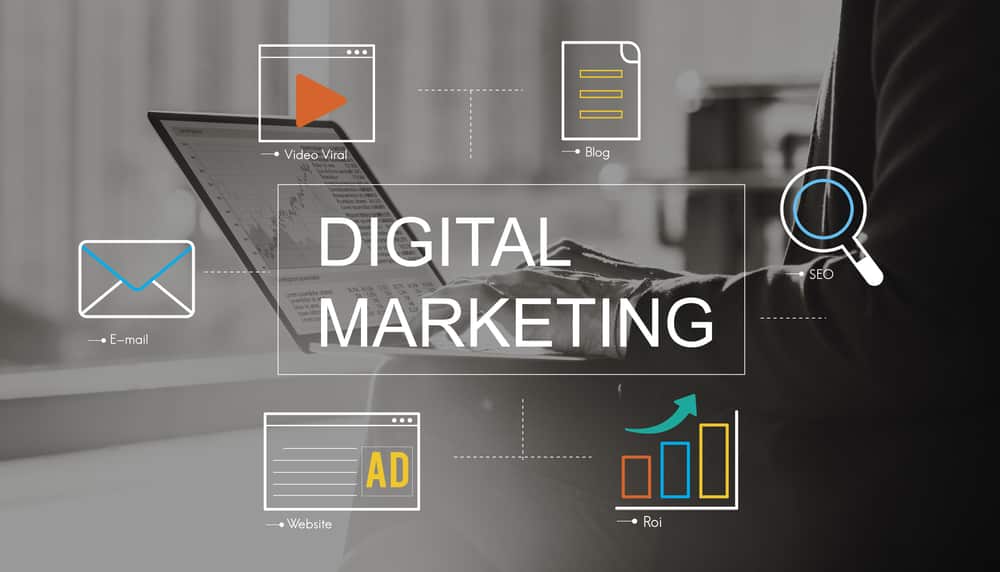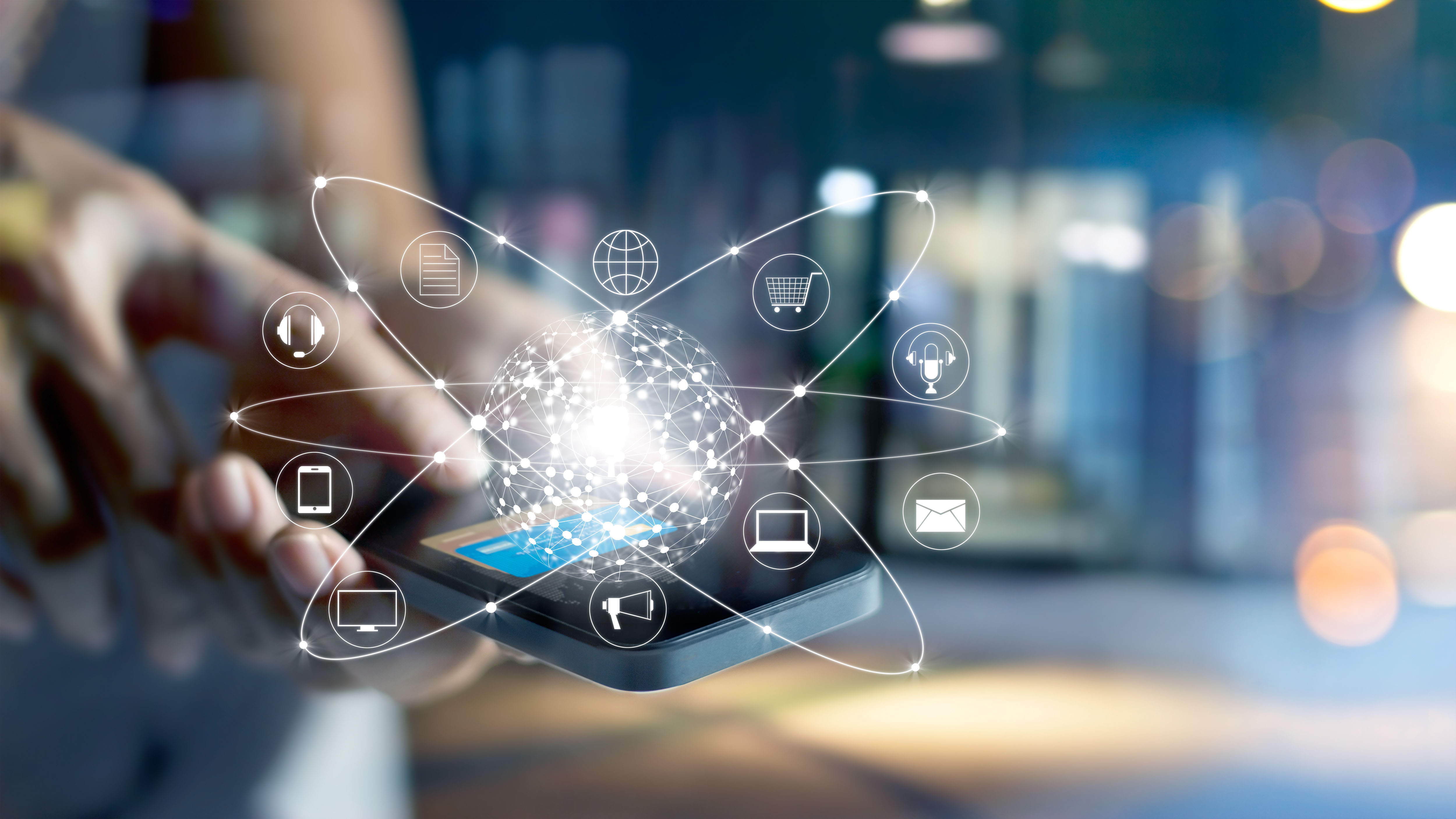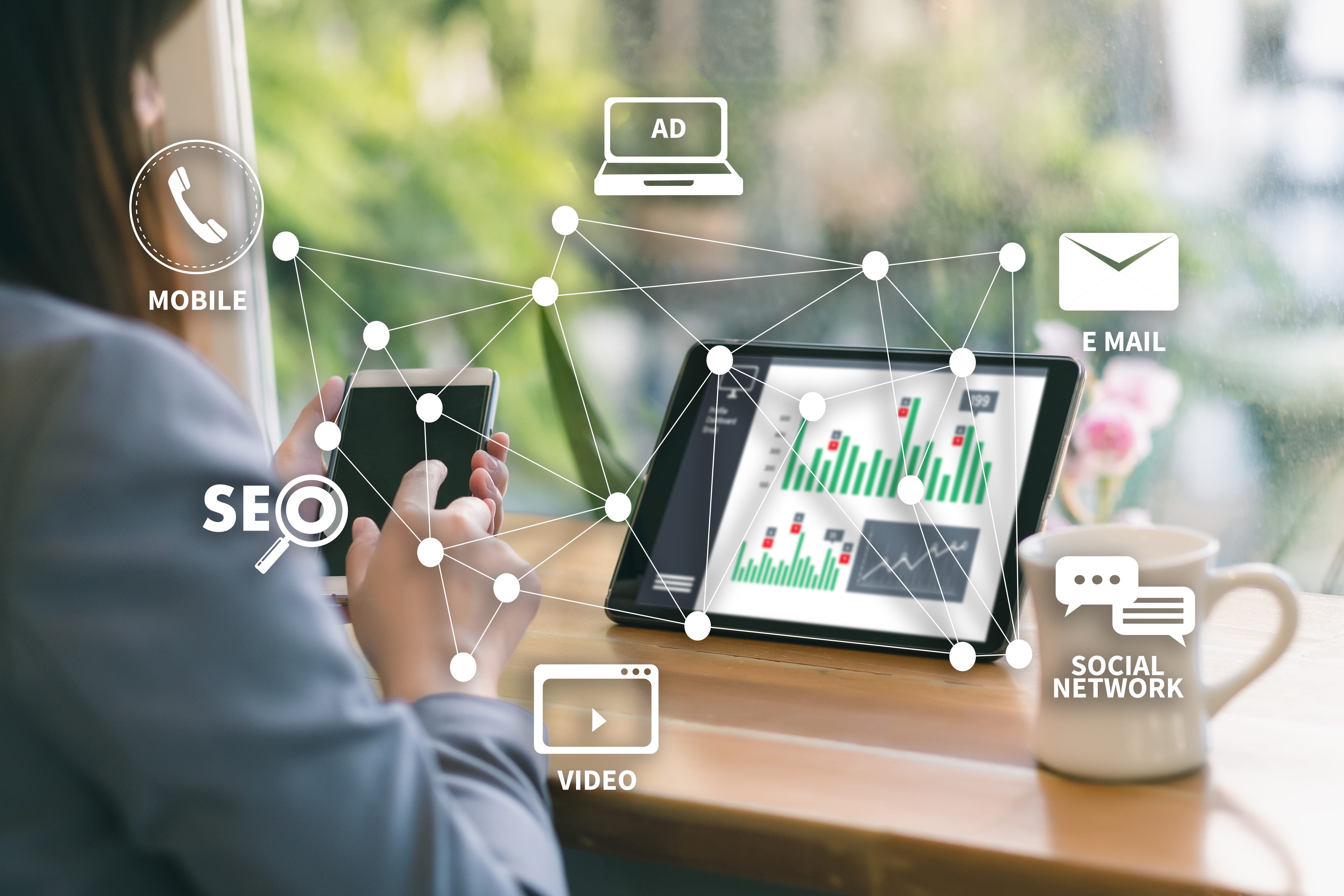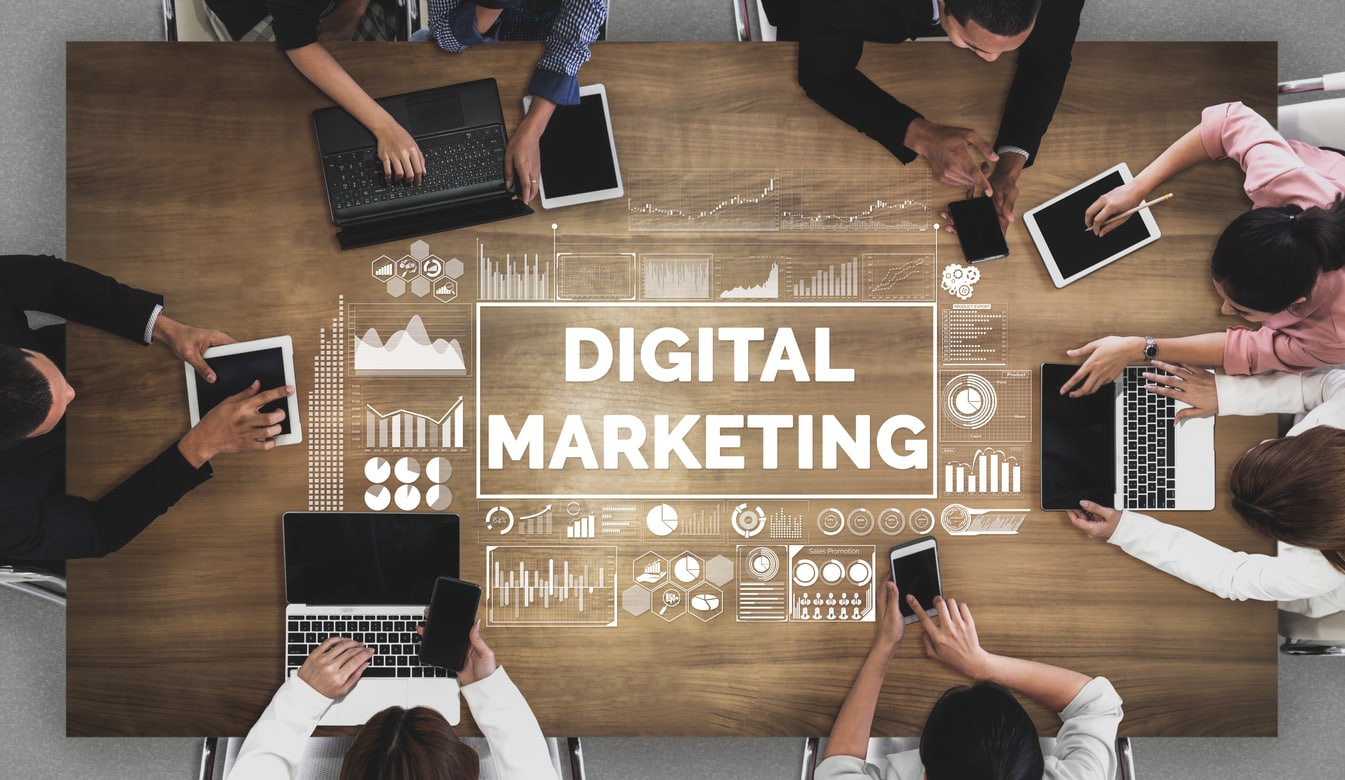- The Role of Machine Learning in Digital Marketing
- How Machine Learning & Analytics is Transforming Marketing Strategies?
- How Machine Learning and Analytics are Shaping the Future of Digital Marketing?
- How to get started in Digital Marketing and ML with Great Learning?
- Future Trends in Machine Learning and Analytics for Digital Marketing
- Conclusion
- FAQs
Did you know?
Over 60% of organizations now utilize data analytics in their marketing strategies, with many integrating machine learning tools to enhance their approaches further.
This integration is not just a trend; businesses employing advanced analytics experience a remarkable 20-30% increase in ROI from their marketing campaigns compared to those that do not.
As these powerful tools reshape digital marketing, they enable companies to craft highly personalized experiences, predict customer behaviour more accurately, and optimize campaigns more efficiently.
In this blog, we’ll delve into how machine learning and analytics drive this transformation, what it means for brands, and how marketers can leverage these advancements to stay competitive.
The Role of Machine Learning in Digital Marketing
Modern digital marketing is largely underpinned by machine learning capabilities, which allow us to analyze and gain insights from huge amounts of data.
ML algorithms are used by almost every company nowadays and some big brands such as Amazon and Netflix also use machine learning to analyze user behavior and create tailored recommendations that heavily elevates user experience while increasing conversion rates. To top it all, chatbots, run on Machine Learning (ML), are helping rewire customer service.
How Machine Learning & Analytics is Transforming Marketing Strategies?
Analytics has been revolutionizing marketing strategies by fostering data-driven decision-making.
- Predictive Analytics: Marketers can use historical data to forecast customer behavior and discover trends. Being able to do this is key for strategic management, as brands will need to keep up with the competition.
- Customer segregation: Advanced analytics allows businesses to categorize their audience within variables like behavior and demographics, thereby permitting targeted marketing that can generate a higher ROI.
- Performance Measurement: Real time analysis of the effectiveness of a campaign is made possible due to analytics tools which allow marketers to adjust the outcome of the campaign immediately.
- Customer Lifetime Value (CLV): Brands analyze the customer data to come up with the long-term value of customers, that helps in budgeting and strategizing.
- Attribution Modeling: Tells businesses which channels contributed to conversions so they can allocate their resources efficiently, maximizing returns on marketing investments.
Check out our selection of free courses to get started.
- Crash Course on Data Analytics Free Course
- Introduction to Analytics Free Course
- Marketing Analytics Free Course
How Machine Learning and Analytics are Shaping the Future of Digital Marketing?
Machine learning (ML) and analytics are revolutionizing digital marketing by enabling marketers to better understand consumer behavior, personalize content, predict trends, and optimize campaigns.
Here’s a detailed look at how these technologies are shaping the future of digital marketing and the opportunities they bring to the industry:
1. Personalized Marketing at Scale
- Hyper-Personalization: Machine learning allows marketers to deliver personalized experiences by analyzing vast amounts of consumer data, including preferences, past interactions, and purchasing behavior. This enables the creation of highly targeted ads, content, and product recommendations tailored to each user.
- Dynamic Content: With ML, brands can implement dynamic content that adapts in real time to the consumer’s preferences. For instance, an e-commerce site can display products that align with the visitor’s past browsing or purchase history.
- Segmentation and Targeting: Advanced analytics allow for detailed customer segmentation, helping marketers target different audience groups with content that resonates best with them, increasing engagement and conversion rates.
2. Predictive Analytics for Better Decision-Making
- Forecasting Consumer Trends: ML algorithms analyze historical and real-time data to predict future trends. By understanding shifts in consumer behavior, companies can make proactive marketing decisions and adjust strategies accordingly.
- Churn Prediction: Predictive analytics models can identify customers likely to disengage or leave a brand, allowing companies to take preventive actions, such as offering personalized discounts or incentives to retain them.
- Optimizing Ad Spend: By predicting which campaigns will perform best, ML helps marketers allocate budgets more effectively. This reduces wasteful ad spending and improves return on investment (ROI).
3. Automation of Marketing Processes
- Chatbots and Customer Service Automation: AI-driven chatbots provide quick and efficient customer service by handling common queries, guiding users through purchasing processes, and gathering valuable data. This automation frees up resources and enhances customer satisfaction.
- Automated Campaign Management: ML-powered tools can automate parts of campaign management, from setting target demographics to bid adjustments, ensuring that ad campaigns run efficiently with minimal manual intervention.
- Email and Social Media Automation: ML can personalize and automate email marketing and social media posting based on user engagement patterns, increasing open rates, clicks, and overall campaign performance.
4. Improved Content Creation and Curation
- Content Recommendations: ML helps identify what types of content perform best for each segment. Platforms like Netflix and Spotify use this technology to recommend content to users based on past behavior, a model that can be applied to digital marketing.
- Content Optimization: Analytics tools measure the effectiveness of content in real-time, allowing marketers to tweak campaigns based on what’s working and what isn’t. For example, A/B testing powered by ML can quickly identify the most effective ad copy or visual.
- User-Generated Content and Influencer Marketing: ML can identify popular content trends and key influencers among target audiences. By doing so, it helps marketers tap into user-generated content and identify influencers that align with their brand.
5. Enhanced Customer Insights and Sentiment Analysis
- Sentiment Analysis: ML models can analyze customer sentiments across social media, reviews, and other online interactions. This enables marketers to gauge public perception and adjust strategies to improve brand sentiment.
- Customer Lifetime Value Prediction: By analyzing purchase data, browsing behavior, and engagement, ML can help marketers estimate customer lifetime value, which is useful for targeting high-value customers with retention efforts.
- Behavioral Analytics: ML tracks and interprets patterns in customer behavior, helping brands better understand how users interact with their digital touchpoints and identifying areas for improvement.
6. Improved Customer Journey Mapping
- Real-Time Personalization Across Touchpoints: ML analyzes data across various customer touchpoints, enabling seamless personalization from social media to website interactions and beyond.
- Attribution Modeling: Analytics tools can map the entire customer journey and determine the impact of each marketing channel. By using ML for multi-touch attribution, marketers can optimize efforts across the most influential channels.
7. Fraud Detection and Enhanced Data Security
- Fraud Detection in Ad Spend: ML can detect suspicious activity, such as ad click fraud, which can save companies significant amounts of wasted spend. Advanced algorithms flag unusual patterns, protecting the integrity of digital campaigns.
- Enhanced Data Security: ML can protect customer data by identifying potential security threats. Given the importance of data privacy in marketing, ML-driven security enhances consumer trust and ensures regulatory compliance.
8. Voice and Visual Search Optimization
- Voice Search Adaptation: As voice search usage grows, ML helps marketers adapt by analyzing natural language patterns and optimizing content for voice queries.
- Visual Search Capabilities: ML technology allows users to search by image instead of text, which is especially valuable in retail and e-commerce. Marketers can optimize their visual assets to make products more discoverable through visual search.
9. Real-Time Marketing Analytics and Reporting
- Enhanced Reporting: ML models can provide real-time analytics, offering marketers actionable insights to improve ongoing campaigns. These insights are often visualized in dashboards, helping marketers quickly grasp performance metrics.
- Predictive Reporting: By leveraging predictive analytics, brands can gain foresight into campaign performance, enabling proactive decision-making for better outcomes.
10. Continuous Learning and Optimization
- AI-Driven Insights for Continuous Improvement: ML algorithms learn from past campaign data to refine future strategies. This cycle of continuous learning allows campaigns to evolve, becoming more effective over time.
- Dynamic Ad Optimization: ML helps marketers dynamically optimize ad placements, messages, and visuals to engage the audience better, boosting conversion rates and reducing costs.
Machine learning and analytics are creating new pathways for marketers to reach consumers with more precision, efficiency, and effectiveness.
From personalizing campaigns and automating processes to analyzing vast amounts of data in real time, these technologies are transforming digital marketing into a data-driven, highly personalized, and constantly optimized field.
As machine learning and analytics tools continue to develop, digital marketers who embrace these technologies will be well-equipped to drive impactful results in the future.
Discover our free courses tailored to mastering these in-demand skills.
- Predictive Analytics
- Marketing and Retail Analytics
- Marketing & Retail Analytics – Advanced
- Data Analytics using ChatGPT with Excel and Python
- Data Analytics using Google Bard with Excel and Python
- How to stay relevant in a data-driven world
How to get started in Digital Marketing and ML with Great Learning?
Great Learning offers digital marketing programs as well as Machine Learning programs with industry aligned curriculum and dedicated placement support for learners to make sure that every learner gets the perfect opportunity.
Some key highlights of programs:
- Flexible to learn from anywhere, anytime, which is best for working professionals.
- Comprehensive curriculum with the latest and updated topics.
- Certification from premier institutions.
- One-on-one mentorship, placement guidance, resume building, and dedicated program support.
- Digital property and capstone projects get assistance on 8+ industry-relevant projects. With more than 36 digital marketing tools covered and 300+ hours of learning content.
Explore top digital marketing and machine learning courses to kickstart your learning. Build skills, boost your portfolio, and get ahead in your career.
Future Trends in Machine Learning and Analytics for Digital Marketing
1. Expansion of AI-Powered Marketing Tools
AI-driven marketing platforms are becoming more common. They simplify complex processes and allow marketers to automate, analyze, and optimize campaigns more effectively.
These tools can help with everything from customer segmentation and personalized messaging to performance forecasting and automated ad placements, making digital marketing more efficient and impactful.
2. Enhanced Use of Machine Learning for Predictive Customer Journeys
Machine learning enables predictive analytics in customer journeys, helping marketers anticipate and respond to customer behaviour before it happens.
By leveraging this data, marketers can develop strategies that engage customers at the right time with the right message, increasing conversions and building stronger customer relationships.
3. Shift to Automated, Data-Driven Marketing Environments
As marketing becomes more automated, professionals are expected to adapt to data-driven workflows.
This shift requires a strong foundation in analytics, AI, and machine learning to harness these technologies for smarter decision-making effectively.
Marketers who can navigate these automated systems will have a competitive edge in shaping strategies that align with real-time insights and customer expectations.
Conclusion
The future of digital marketing is closely linked with machine learning and analytics, enabling businesses to create highly personalized user experiences and drive growth through meaningful engagement.
Building skills in machine learning and analytics can give you a competitive edge in this evolving field. To start this journey, explore the Great Learning PG program in AI and ML, which offers hands-on projects, one-on-one mentorship, and dedicated support to secure top placements.
FAQs
A. Machine learning enables businesses to comprehend large amounts of data, which helps to understand customer behavior and preferences. By which businesses can make more data-driven decisions. By using ML, marketers can make targeted campaigns, real-time decisions, and personalized experiences for customers.
A. Analytics can be very useful in digital marketing, it helps marketers to track real-time campaign performance, understand the needs of customers and insights, and make data-driven decisions. Which leads to better resource allocation.
A. Some of the most common applications of machine learning in digital marketing include recommendation engines, dynamic pricing, SEO optimization, email marketing automation, and chatbots implementation, all of which makes customer experience more engaging.
A. Great Learning offers programs which are curated for digital marketing aspirants, and machine learning enthusiasts, covering all the industry-relevant skills, with hands-on projects and case studies. Programs also have placement support which is ideal for someone who is looking to build a career in this field.
A. Predictive analytics enables marketers to use the data to forecast customer insights and behavior, identify trends, and anticipate future needs of customers. By this approach marketers can build a great customer experience.







